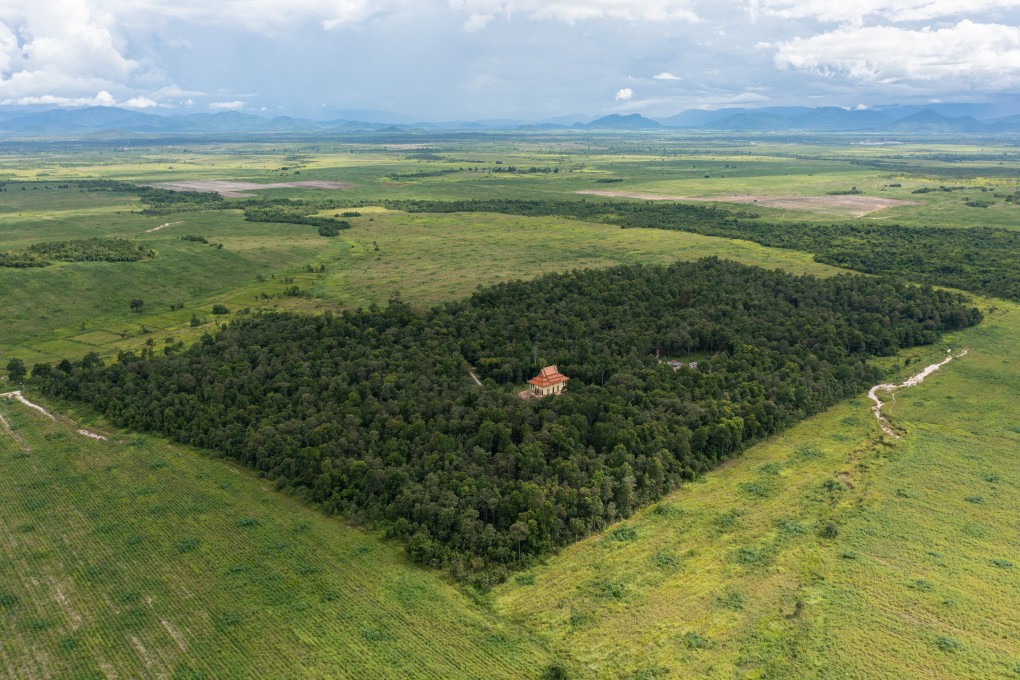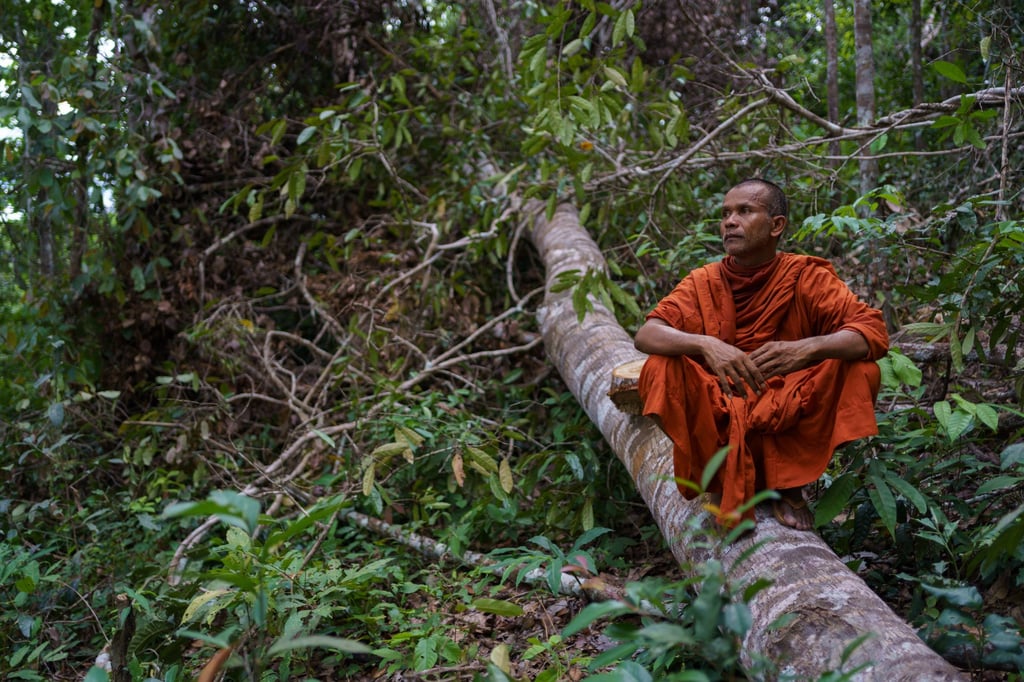‘It can be pretty horrifying’: how Cambodia’s land grabs are ruining lives
- Cambodia’s Metta forest has been devastated by deforestation as the government gives away land to the elite, with villagers’ protests quashed by violence

The monk looks haggard in the midmorning sun, scanning the views through surrounding trees while chainsaws drone in the near distance.
“It’s as if a storm has come and the animals have fled like there has been a hurricane,” he says from his sparse, open-air pagoda in the woods. “Now everything is destroyed, I don’t see a reason why I should stay.”
With the early stages of a grey beard, the venerable Buddhist monk Prom Socheat draws in his orange robes as he tells of the loss of his home, where he has lived in hermitage for about 20 years in these once-dense tropical woodlands called the Metta forest, in Cambodia’s Kampong Speu province.
But in August 2021, as Cambodia’s once-vast, formally protected woodlands continued to disappear at one of the world’s highest rates of deforestation, the country’s environmental crises landed on the monk’s doorstep.

That was when Cambodian Prime Minister Hun Sen signed away 262 hectares of the forest through a sub-decree that officially gave the thickest stretch of the woods to 41 families connected to the armoured vehicle unit of the Royal Cambodian Armed Forces. The state quietly organised the giveaway with no public notice, announcing the deal only after it was approved by Hun Sen himself.
News of the sub-decree sparked immediate conflict with villagers, who set themselves to resisting the incursion by directly confronting loggers hired to clear-cut the privatised stretch of forest. Their protests, they say, were soon met with force.